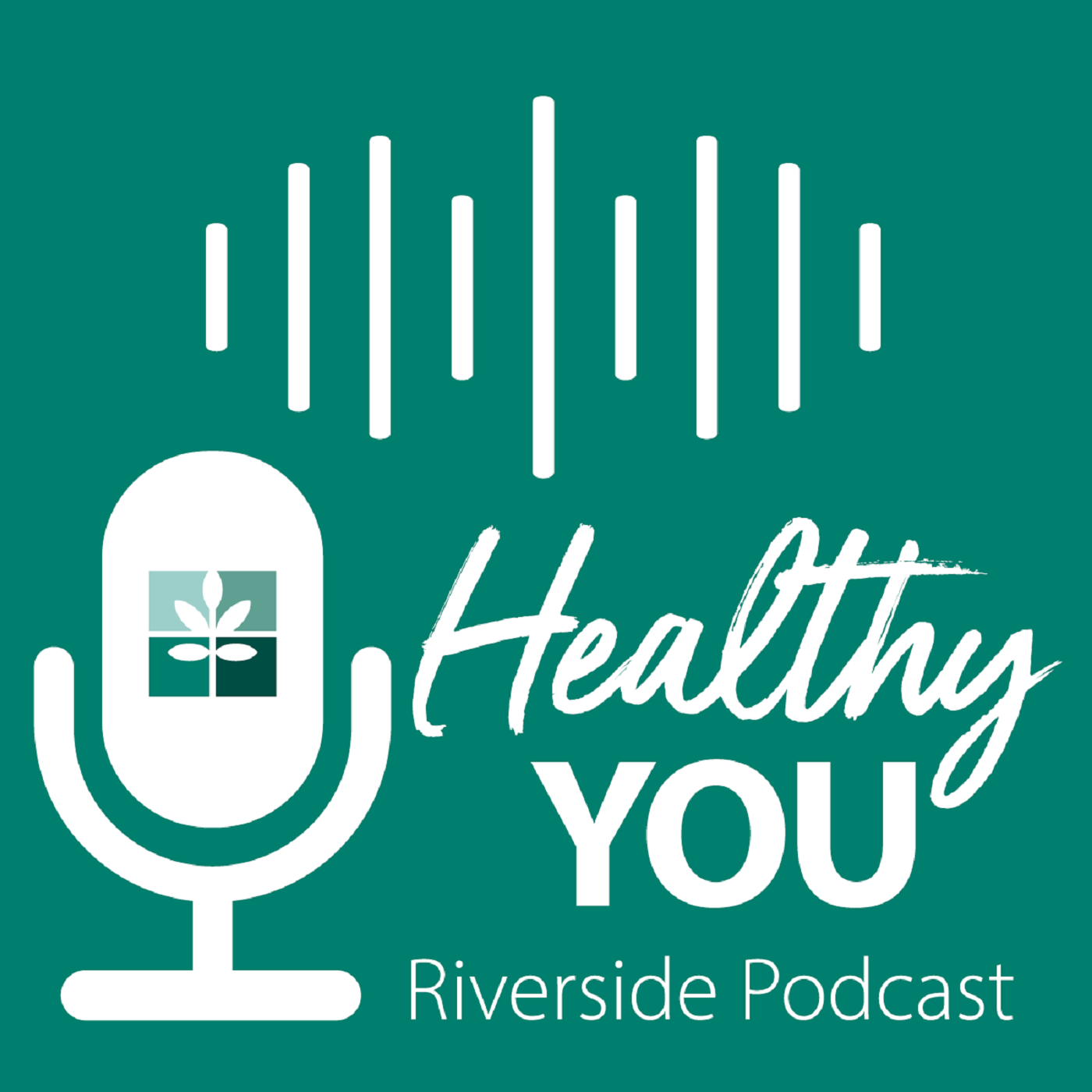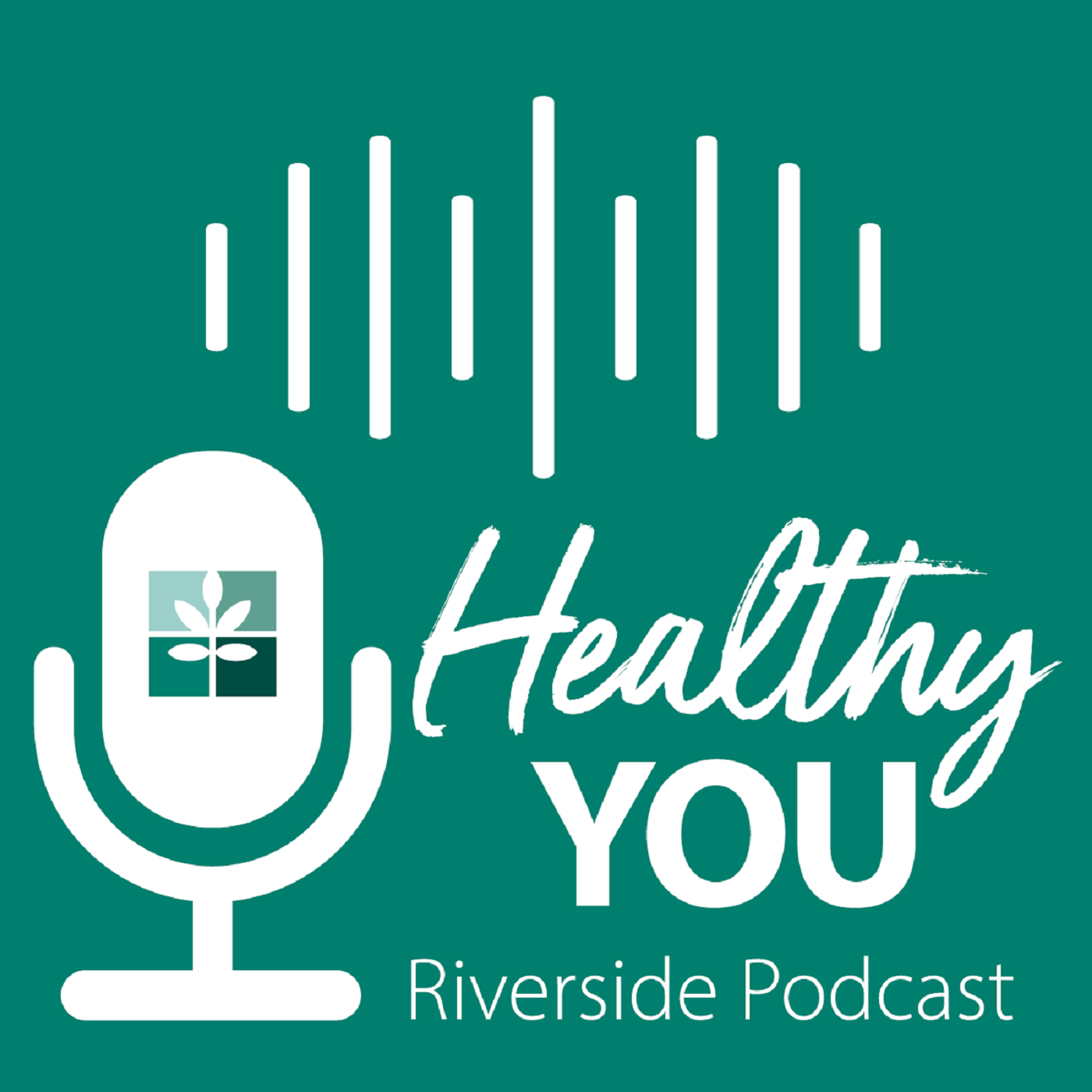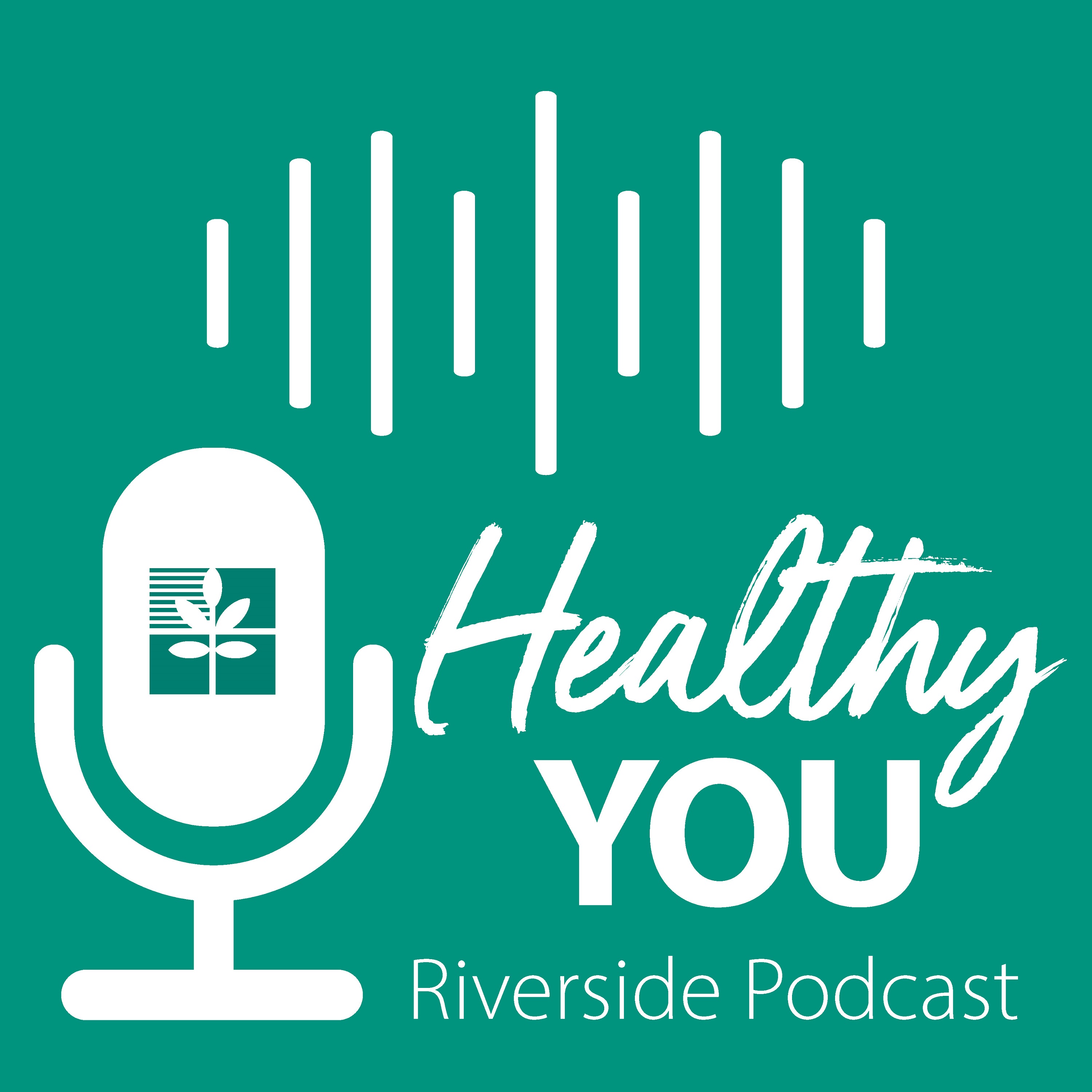Episode Transcript
[00:00:00] Speaker A: From Riverside Health system. This is the Healthy you podcast, where.
[00:00:04] Speaker B: We talk about a range of health.
[00:00:06] Speaker A: Related topics focused on improving your physical and mental health. We chat with our providers, team members, patients, and caregivers to learn more about how to maintain a healthy lifestyle and improve overall physical and mental health. So let's dive in to learn more about becoming a healthier you.
[00:00:28] Speaker B: All right, well, welcome to the Healthy you podcast. I'm really excited today to have with me in the studio our guest, Lindsay Hefner. Lindsay is a nurse practitioner with Riverside partners in women's health. And the title of this episode is pregnancy, what to expect during that fourth trimester. So welcome, Lindsay. Glad to have you.
[00:00:54] Speaker C: Thank you for having me.
[00:00:56] Speaker B: All righty. We are continuing this series on pregnancy, and I'm really excited to hear about this fourth trimester.
So, Lindsay, tell me a little bit about how you ended up in this line of work and nurse practitioners specifically.
[00:01:13] Speaker C: So I started out in labor and delivery as a labor and delivery nurse. Okay. And stayed in that area for about three years. But I loved working with the women and actually had thought about going into midwifery at one point.
Love working with babies, helping moms, getting that one on one interaction, too, and the support that's involved in that area. Right. And shortly into doing my rn, I wanted to work my way up to be a nurse practitioner and decided to stay with women's health just because of how much I loved that area.
So I have gotten into women's health, and now I get to do more than just pregnancy, which is great.
Dealing with pregnant moms is definitely, and postpartum is still definitely my sweet spot. But, yes, that's kind of my journey so far. So I've been doing this now as a nurse practitioner for about eight years.
[00:02:20] Speaker B: Well, thank you for all the work that you do in that space. I have two children myself, and I know I would not have made it without the labor and delivery staff and team.
I knew very early on after starting clinicals in nursing school that I couldn't do labor and delivery. It was going to be challenging enough just for me to have my own. So great work. Great work.
[00:02:43] Speaker C: Thank you.
[00:02:44] Speaker B: All right, let's talk a little bit about the fourth trimester. What is this fourth trimester? What does that mean?
[00:02:52] Speaker C: So the fourth trimester is pretty much after delivery up until about the first three months postpartum. Okay. And really, that postpartum period can go on even beyond that to an extent. But we're mostly looking at the fourth trimester in those first three months.
[00:03:11] Speaker B: Okay.
I know for me, and then just some of my peers, colleagues, friends, that's such a pivotal time. And we don't always talk about some of the challenges women experience, specifically postpartum depression, just changes in mood, lack of sleep.
Talk about a little bit of those things that we know that women experience during that time.
[00:03:39] Speaker C: Sure. Yes, definitely. Those first couple of weeks are really tough. I am actually a mom of three myself, so I've been in those shoes from a personal standpoint, but also seeing and hearing the stories of so many women coming in after. And the struggle is real, so to speak.
Babies and moms are making huge adjustments.
[00:04:08] Speaker B: Absolutely.
[00:04:09] Speaker C: Their hormone levels are all over the place as the body's coming down from pregnancy, and the mood definitely can get all out of whack.
There are kind of normal changes that happen initially as those hormones shift. And we kind of see that in the first couple of weeks where moms can be a little more weepy than normal.
They may sleep a lot. They may kind of have that roller coaster of emotions, and that can be okay for a period of time. What we warn moms about is if those symptoms continue and if they get to where they just can't do their normal day to day thing.
They can't sleep because they're so anxious. They can't get up out of the bed because they feel down. And that's when we really want moms to be seen in the office so that we can help them with those changes.
[00:05:09] Speaker B: Yeah, I'm glad that we're starting to talk about those things. I know as a mom myself, and maybe you can relate. You just think that this is normal.
You feel like I should be really celebrating right now, which you are. You have that great bundle of joy. But I'm glad that there's more conversation and women are talking about that more, and I hope that that helps other moms when they're experiencing those things, to reach out for help and know that it's okay.
[00:05:38] Speaker C: Right? Yes. That's the biggest thing is we want women to know that we are here to help them.
I tell my patients, please never feel shame about your emotions.
We get it. I've been there personally myself, and I tell people that because I want them to know they're not alone. I think the babies are so catered to those first couple of weeks that sometimes the moms feel left out and forgotten. And as a practitioner, I want women to know that they're loved and accepted and should never feel shamed about getting through this tough, tough season.
It is a roller coaster. Right. And there's wonderful resources in the community. It's just a matter of sharing that information and letting women feel that they're heard and that they have that support.
Postpartum support. Virginia is a wonderful organization in our area that they have free website information. We work closely with them as a system.
And there's also wonderful counselors in the community and through riverside that can help women. Right.
[00:06:57] Speaker B: And I'm glad to see the evolution of fathers being allowed that dedicated time off, which was something that was not talked about when I was having children.
It was mostly the mom's maternity leave. But I'm really glad that it's evolved and that fathers are partnering with moms for support during that time. And it's not looked at as a negative. Right. It's a positive. I don't know if you.
[00:07:30] Speaker C: Definitely.
That support is huge, and we have a lot of military families in the area. Right. So sometimes dads aren't always around or family is not always around, and we hear that quite often. So there definitely is a need for support from the spouses, for sure. But some women DOn't have THAt. And so I encourage women to get involved with some of these groups that are in the community. So whether that's through stroller strides or mops or those types of community organizations, that you build your tribe, build your team with other moms going through the exact same thing that you are, and that really can bring that peace of mind to so many women that they're not alone.
[00:08:29] Speaker B: Right. I have a new grandbaby. SHe's a year old now. And I talked to my daughter. She talked about how being older, having children, that it's very different. And so she didn't put a whole lot of structure in place. And so I think that that is IMportant so that you have balance. I don't know if you want to talk a little bit about that, them having a sleeping schedule and a routine and all of those things where you can create some balance and downtime for yourself as well.
[00:09:00] Speaker C: So the first three months, I think it's important for the moms to focus on just a couple of things that's getting plenty of rest, especially with breastfeeding. They're going to be breastfeeding sometimes EVERY two to 3 hours during the day, which is about eight to ten times during the day, and then at least once at night. So that can be EXHAUSting in and of itself. And so we really encourage moms, if they can get 4 hours of sleep at night, that makes a huge difference. If you get even Just that stretch once a day and kind of sleep when the baby sleeps. Babies are still adjusting to being outside, too, so their sleep schedule is a little bit off from ours, and they can't really get in a real routine till about that three month mark. So some cues that moms can look for would be if baby's rubbing their eyes, if they're overly fussy, if they're kind of scrunching up and irritated, and they can kind of queue into those cues to then create that safe space for baby to fall asleep during the day that may be on mom's chest, and that can be just snuggled up because that's what they're used to in the womb.
[00:10:18] Speaker B: Yes. That's called tummy time, right?
[00:10:20] Speaker C: It is.
[00:10:20] Speaker B: My daughter. My daughter did mention tummy time.
[00:10:24] Speaker C: Yes. Double the benefit for sure. Okay. They can hear mom's heartbeat like they did in the womb and then at night, creating that dark space that they're used to to kind of clue them into. Okay, now it's time to go to sleep for a longer stretch.
And swaddling them and doing those types of routines, other things that moms are adjusting to is obviously breastfeeding or bottle feeding. So that can be a task in and of itself than cluing into those cues for the baby.
So that's kind of their biggest job when they come home, the moms is to make sure the baby's fed and that they get plenty of rest.
[00:11:13] Speaker B: Right. And I know when you're breastfeeding, you want to spend that time with the baby initially, early on, but pumping can be an option and taking a break, and moms shouldn't feel guilty about that. I know that that comes up sometimes. They feel like only the mom having the baby Latch on is the only way that they can be fed during that time. But to get rest, to your point, you may be able to pump and get some support with.
[00:11:42] Speaker C: I'm glad you brought up the guilt or the shaming, whatever you want to say, but that is really important because that can be a precursor to some of the postpartum depression and anxiety that women get because there is a lot of pressure around breastfeeding. And again, there's no shame which way that women want to go. I think the biggest thing that women need to hear is that feed your baby. Right. And love on your baby.
[00:12:15] Speaker B: Yeah, that's great advice. Now, we talked a little bit already about some of the signs. Are there other things that women should be aware of that, hey, maybe I need some support or I'm really suffering with Depression here. And it's outside of what's normal just in that fourth trimester.
[00:12:36] Speaker C: Sure. So again, if the Depression anxiety symptoms become to where they can't kind of function, meaning they don't want to get up out of the bed, they find themselves not wanting to leave the baby because they're anxious about something happening, they can't sleep.
Those are big clues that something maybe needs to be talked about further with a provider. Okay.
And typically, women have trouble with. They just can't stop crying. They're crying about nothing for hours with sleep. If they don't sleep, sometimes that can turn into periods of manic episodes where you find them cleaning the house for long periods of time or kind of talking outside their head. Different person.
[00:13:31] Speaker B: Right.
[00:13:33] Speaker C: And we don't want that to lead to where they'd want to harm themselves or somebody else.
[00:13:38] Speaker B: Okay. That's great feedback, great information. I think the more that we talk about it, the more that we support moms and we have to lean on each other. And to your point, whatever your support group or support system looks like, use that during that time.
[00:13:55] Speaker C: Exactly.
[00:13:56] Speaker B: Okay.
Well, would you say again, the group that you mentioned earlier that women can reach out to, and if someone is listening today, how can they connect with those resources to support them during this time?
[00:14:13] Speaker C: Sure. I think, like I said, the biggest thing is get help. Okay. And I would keep that just on the forefront of your mind. If you need help, don't be ashamed or scared to ask for it.
We are more than happy to see patients in the office. Okay. All of our partners in women's health providers are well versed and knowledgeable about postpartum suppression, anxiety and beyond that. So that can look a little different depending on the areas where patients live. But postpartum support Virginia covers the whole peninsula, so women can go on that website, which is postpartumvirginia.org, and they can see exactly what resources are in their area. They have meetup groups. And that's a really good way to also connect with other women going through the exact same feelings that they are.
[00:15:14] Speaker B: Okay.
[00:15:14] Speaker C: And sometimes medication is indicated. And again, I can't say enough that women should never feel shame or guilt about needing to be on medication. It's a season.
We actually look into postpartum depression for the first two years after birth. So if women are experiencing those symptoms, sometimes it's not initially right after having a baby. Sometimes it's even six months to a year after having a baby. Right. But that can come from all those changes. And the life stressors that come with having a new person in their lives. Right?
[00:15:57] Speaker B: Absolutely.
I know we're talking about mom. Sometimes we can overlook what's going on with ourselves for the sake of our babies. Are there some things that women can look for in their baby where they may not be thriving or feeding off of them and their emotions?
[00:16:15] Speaker C: So sometimes moms can get more disinterested in the baby. They don't want to hold the baby, they don't want to feed the baby. They're kind of leaving them alone, or they want to just hand them off to somebody else constantly. And while some of those things can be completely normal, if there is that increased disinterest in the baby, which can sometimes be noted as soon as. When. That first day out of the womb, that is something to pay attention to. Okay. We do watch babies wait very closely in the postpartum period. So they're going to be going into the pediatrician's office and getting weight checks. And that's good, those types of screenings.
But that is another thing that with the breastfeeding or bottle feeding, that we pay attention to, because we see it more with breastfeeding, where women are so caught up in wanting to breastfeed, and they end up not having enough of a supply, and they don't get the help that they need to help with that. And then baby's weight drops.
[00:17:22] Speaker B: That's good information.
[00:17:24] Speaker C: Yeah.
[00:17:24] Speaker B: Okay. Well, it's been a pleasure having you in the studio.
If our viewers want to reach out to you specificAlly, how can they contact you?
[00:17:34] Speaker C: So I am part of partners in women's health up in Williamsburg. We are currently at the KingSwAy location, but we will be moving to DOcTors hospital in the spring, which we're super excited about. And we have a wonderful team up there.
I've been very blessed to be a part of that.
[00:17:53] Speaker B: All right, thank you so much for your time, and you're welcome to come back anytime.
[00:17:57] Speaker C: Yeah.
[00:17:58] Speaker B: Thank you.
[00:18:00] Speaker A: Thank you for listening to this episode of Healthy Youth. We're so glad you were able to join us today and learn more about this topic. If you would like to explore more, go to riversideonline.com.


